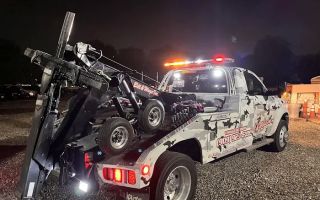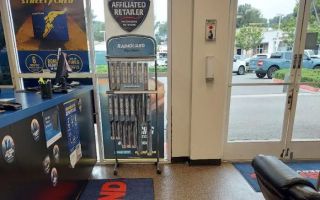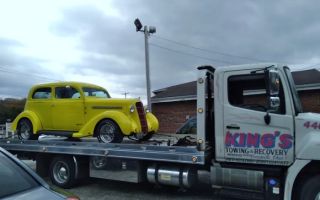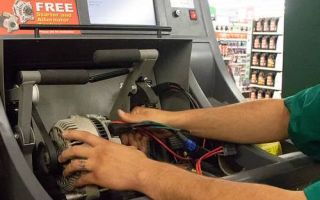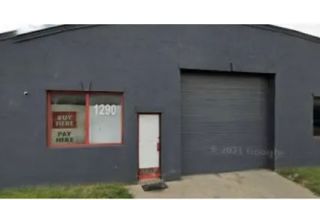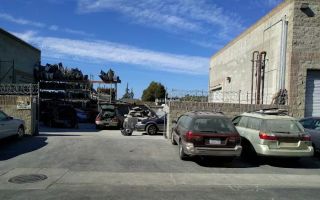Understanding the Causes of Frequent Car Stalling
If you've ever been driving and felt your car suddenly lurch to a stop, you know just how frustrating and unnerving car stalling can be. I remember the first time my car stalled on the highway—it was an awful experience. I had to quickly pull over, heart racing, wondering if I had just encountered a serious mechanical issue. Thankfully, after some research and professional advice, I found out that stalling is often caused by common, manageable problems. If you're dealing with frequent stalling, this guide is for you. I'll walk you through the possible causes and provide practical solutions.
1. Fuel Delivery Problems
One of the most common reasons for a car to stall is an issue with the fuel delivery system. This was the culprit in my case. If your car isn’t getting the right amount of fuel, the engine can’t stay running. There are several components involved in the fuel system that could be causing issues:
- Fuel Pump: A failing fuel pump may not deliver enough fuel to the engine, leading to stalling, especially when accelerating or idling.
- Fuel Filter: Over time, the fuel filter can become clogged with dirt and debris, restricting the flow of fuel to the engine. If this happens, the car may stall unexpectedly.
- Fuel Injectors: Dirty or malfunctioning fuel injectors can cause improper fuel spray into the engine, which can lead to stalling, especially at low speeds.
If you suspect a fuel issue, checking the fuel filter and pump is a good first step. Replacing a clogged filter or a worn-out pump can often resolve stalling caused by fuel delivery problems.
2. Ignition System Problems
Your car’s ignition system is responsible for starting the engine and keeping it running smoothly. If there's an issue with this system, such as a faulty spark plug or ignition coil, your car could stall. I once had an ignition coil fail on me, and my car stalled multiple times before it was diagnosed. Here are some common ignition system issues that can cause stalling:
- Spark Plugs: Worn-out spark plugs can cause the engine to misfire or stall, especially during idle.
- Ignition Coils: If the ignition coils aren’t working properly, they may not send the correct voltage to the spark plugs, causing the engine to stall.
- Distributor Cap: In older vehicles with a distributor system, a cracked distributor cap can cause the engine to stall unexpectedly.
Regular maintenance of your ignition system can prevent this. If your spark plugs or ignition coils are old, it's wise to replace them. This could save you from the hassle of frequent stalling issues.
3. Idle Air Control Valve (IACV) Issues
The Idle Air Control Valve (IACV) plays an important role in regulating your engine's idle speed. If this valve becomes dirty or malfunctions, it can cause erratic idling, or worse, stalling. I remember my car stalling at red lights, and it turned out to be a clogged IACV. If the IACV can’t control the air flow properly, your engine may stall because it’s not getting the air it needs to keep running. Here's how to check for IACV problems:
- Notice if your car stalls when idling or if the idle speed fluctuates.
- If the car stalls repeatedly at stoplights or in traffic, a dirty or faulty IACV is likely the problem.
If the IACV is dirty, you can clean it with a suitable cleaner. If it's beyond cleaning, you may need to replace it to fix the stalling issue.
4. Faulty Sensors
Your car is equipped with various sensors that monitor things like air intake, fuel mixture, and exhaust emissions. If any of these sensors are faulty, they can send incorrect signals to the engine control unit (ECU), leading to stalling. Some of the most common sensors that could be causing stalling include:
- Mass Air Flow (MAF) Sensor: A dirty or faulty MAF sensor can cause the engine to stall by providing inaccurate readings about the air entering the engine.
- Throttle Position Sensor (TPS): This sensor monitors the throttle’s position. If it fails, the ECU may not know when to adjust the air-fuel mixture, leading to stalling.
- Crankshaft Position Sensor: If the crankshaft position sensor is malfunctioning, it may send the wrong signals to the ECU, causing the car to stall during driving.
If you’re experiencing stalling, a mechanic will often use a diagnostic tool to read any error codes related to these sensors. Replacing faulty sensors can help restore your car’s performance.
5. Problems with the Battery or Alternator
Another common cause of car stalling is issues with the battery or alternator. When I had my first car, I didn’t realize how crucial the alternator was. One day, the alternator died unexpectedly, and my car stalled in the middle of traffic. A faulty alternator may not provide enough power to keep the engine running, leading to stalling. The same goes for a weak or dead battery. If either component is failing, the car may start but stall shortly after. Here’s what you can check:
- Battery: Check the battery for corrosion around the terminals and ensure the battery is charged.
- Alternator: If the alternator isn’t charging the battery properly, your car may stall because it doesn’t have enough electrical power to run.
If your battery or alternator is old or damaged, replacing them may solve your stalling issues.
6. Transmission Problems
If your car stalls while shifting gears or during acceleration, it could be a transmission issue. A slipping clutch, low transmission fluid, or a faulty torque converter can lead to stalling. While I was learning to drive, I had a friend who experienced stalling every time they shifted into second gear. The problem turned out to be low transmission fluid, which was causing the gears to grind and the engine to stall. Here's how to check for transmission problems:
- Check the transmission fluid level and top it up if it's low.
- If the clutch feels soft or unresponsive, it may need to be replaced.
- If you notice slipping or unusual noises when shifting, take your car to a mechanic for a transmission inspection.
Fixing transmission issues can be costly, but addressing them early on can prevent a complete transmission failure, which could leave you stranded.
7. Vacuum Leaks
A vacuum leak can cause a variety of engine performance problems, including stalling. If there is a break or crack in the vacuum hoses or intake manifold, the engine may not receive the correct air-fuel mixture, leading to erratic idling or stalling. I’ve had a vacuum hose leak on my car before, and I was surprised to find that the engine was stalling as a result. Here's how to check for vacuum leaks:
- Listen for a hissing sound near the engine, which is a common sign of a vacuum leak.
- Inspect the vacuum hoses for cracks or damage.
Repairing or replacing damaged hoses can often fix the stalling issue caused by a vacuum leak.



